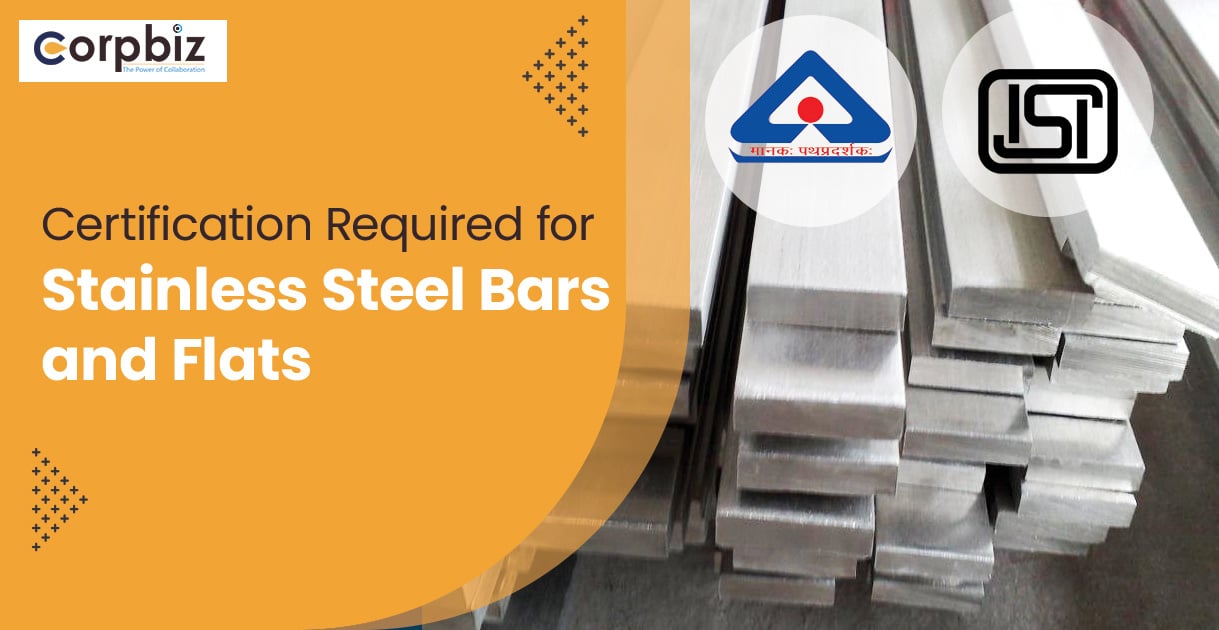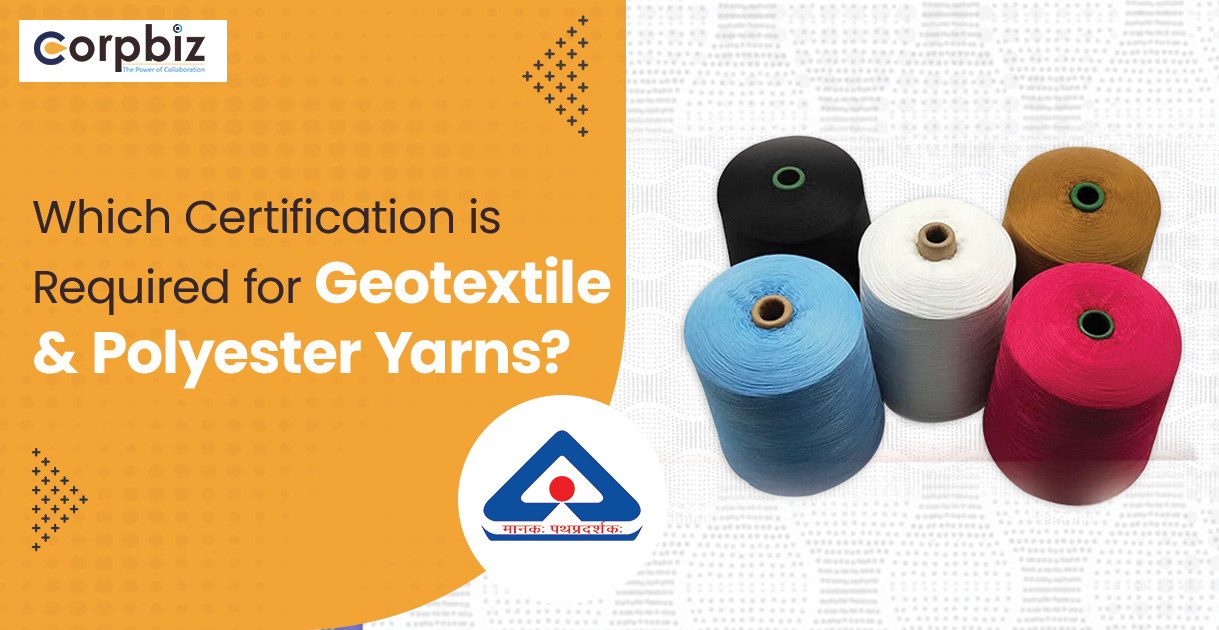Stainless Steel is a significant material in mechanical engineering because of its resilience, power and flexibility. It is used in different industries, such as construction, automotive, aerospace, and manufacturing. Among the many forms of stainless steel available, bars and flats play an important role since they form the basic building units for various products.
However, quality should not be compromised when it comes to stainless steel bars and flats; rather, it should be their top concern as they meet all required standards, and safety measures should be followed like IS 6603:2001, which is one of the most vital specifications for steel bars and flats in India.
The blog explains the need for certification for stainless steel bars and flats according to IS 6603:2001, the types of standards it covers, the procedures to obtain it, and its applicability in assuring the quality and reliability of the product.
What is IS 6603:2001?
IS 6603:2001 is an Indian standard that stipulates the requirements for stainless steel bars and flats. It also provides details of the minimum requirements for stainless steel bars and flats, including chemical composition, mechanical properties, etc., that are expected in such products. These provisions apply to a wide range of stainless steels. Key Aspects of IS 6603:2001:
1. Chemical Composition
This defines the acceptable limits for elements like chromium, nickel, carbon, and so on. These elements should be controlled to a certain degree to produce the desired mechanical properties in the Steel.
2. Mechanical Properties
The Steel shall have a minimum of the following mechanical properties, namely tensile strength, yield strength, and elongation so that it can withstand the various stresses to which it is used in operation without failure.
3. Dimensional Tolerances
The basic idea is to work out acceptable tolerances for the dimensions of the Steel, ensuring that they might be further processed into finished products. Accurate dimensions shall be established at this stage because there should not be problems at subsequent stages of manufacture.
Importance of Certification for Stainless Steel Bars and Flats
Fundamentally, the certification, according to IS 6603:2001, is considered important in ensuring the quality and performance of Steel. The importance of certification for Steel are as follows:
Quality Assurance
The certification under BIS will ensure that the bars and flats fulfil the high standards of quality given by BIS, such as the chemical and mechanical properties and other critical factors that will provide the reliability of the products to consumers.
This is very important in industries where the failure of materials may lead to catastrophic results, such as defence and construction.
Meeting industry standards
The majority of industries require high levels of safety and performance. This requirement is mandatory for using only certified items. Manufacturers with certifications ensure that their products meet industrial standards and can be used in different sectors.
Facilitating Market Access
To enter the Indian market, stainless steel producers must have certification per IS 6603:2001. Most manufacturers consider IS 6603:2001 as a mandatory criterion for the supply of materials since it shows conformance with the required standards for use in India.
Customer Confidence
Buyers know that when they purchase certified products, they undergo rigorous testing procedures according to accepted norms. It reduces the risk of product failure or related costs.
Certification Process for Stainless Steel Bars and Flats as per IS 6603:2001
The process of BIS Certification for Stainless Steel Bars and Flats undergoes some steps, all of which are intended to verify that the product meets the required standards. Therefore, here is a step-by-step guide to the certification process as per IS 6603:2001:
STEP 1. Submission of the Application
When a manufacturer applies to the Bureau of Indian Standards or BIS, the certification process officially begins. The application includes information about the manufacturing facility, the items that will be certified, and the specifics of the current quality management systems.
STEP 2. Initial Assessment
Following the successful submission of the application, the BIS will evaluate the manufacturer’s facility and production procedures.
During this phase, the production procedure, quality control measures, and general capacity to manufacture stainless steel bars and flats in compliance with IS 6603:2001 will be evaluated. It may also involve checking the raw materials to ensure they fulfil the required criteria.
STEP 3. Sampling and Testing
The samples of the stainless steel bars and flats are taken from the production line and put through a series of tests to verify their chemical composition, mechanical properties, and dimensional accuracy to ensure accurate and dependable results. IS 6603:2001 procedures conduct these tests.
STEP 4. Quality Management System Audit
The factory’s Quality Management System (QMS) audit is a component of the certification process, in addition to the approval obtained through product testing. A QMS audit ensures that the producer has procedures in place to uphold consistency in product quality. Process control, documentation, corrective measures, and continuous improvement programs are a few areas that the audit may look at.
STEP 5. Grant of Certification
BIS determines whether or not to award the certification based on the findings of the QMS audit and the initial evaluation of the product testing. The manufacturer will receive the certificate if the product satisfies all IS 6603:2001 specifications, and the manufacturer’s processes are deemed satisfactory.
STEP 6. Surveillance and Re-certification
Obtaining certification is an ongoing process. Manufacturers will remain under constant observation through routine surveillance audits and product testing to ensure ongoing compliance with IS 6603:2001 and spot any possible issues before they affect the quality of their products. According to the certification authority’s policies, re-certification is necessary every few years.
Role of the BIS in Certification for Stainless Steel Bars and Flats
The national organisation in India in charge of product certification, standardisation, and quality control is the Bureau of Indian Standards (BIS). BIS plays an essential role in the certification process for IS 6603:2001. Therefore, the role of BIS is as follows:
Standard Development
BIS is responsible for creating the IS 6603:2001 standard and overseeing its periodic revisions as needed. To accomplish this, a consensus-based strategy involving manufacturers, industry leaders, and other stakeholders. It ensures that the established standard remains relevant, reflecting both new market demands and technological improvements.
Issuance of Certification
BIS is the recognised agency that issues certification for stainless steel bars and flats under IS 6603:2001. Product producers must apply for certification, which will be handled in accordance with BIS laws and supervision.
Testing and Inspection
The BIS conducts the necessary tests and inspections through its network of laboratories and inspection bodies during the certification process. Modern technology guarantees that tests are accurate and trustworthy and produce dependable findings.
Surveillance and Enforcement
BIS performs surveillance audits and inspections regularly to ensure that IS 6603:2001 is followed consistently. In the case of non-compliance, BIS may take necessary remedial action, such as suspending or revoking the certification.
Awareness and Training
BIS’s responsibility is to raise awareness of the need for certification and instruct manufacturers on complying with IS 6603:2001. It helps the producer understand the demands and implement best practices in their production process.
Tests for the Certification Process for Stainless Steel Bars and Flats
Several tests required while acquiring the certificate for Stainless steel bars and flats are as follows:
- Test of chemical composition analysis
- Tensile Test
- Bend test
- Flattening test
- Dimensional Inspection
- Surface Finish Inspection
- The hardness test
- Intergranular Corrosion Test
- Spectroscopic Analysis
- Microscopic Examination
Essential Documents for Stainless Steel Bars and Flats
To acquire ISI/BIS Certification, you must submit certain essential documents. The list of documents is as follows:
1. First Application Form V
This form will contain the primary factory and information related to the product category.
2. ISI/BIS Application fee
A copy of Remittance/Payment Advice.
3. Copy of Test Report
A Copy of a test report done within a month by the Internal Laboratory indicating product compliance with the relevant Indian Standard.
4. Address Proof
Address Proof of Factory units including factory license or tax registration document in the name of the manufacturer showing their scope.
5. Trademark Registration
Trademark Registration, if available (Photocopy of Trademark Registration)
6. Certification from Regulatory Agencies
Certificates from the concerned regulatory agencies for manufacturing.
7. Product Drawing
Product Drawing (as applicable) of the current manufacturing capacity.
8. Details of the Raw Materials
It will include the component’s name, the supplier’s name, and the component’s quality certificate.
9. Machine Details
Machine Details will include the names of the manufacturers, manufacturing capacity, and quantities.
Challenges Faced in Certification for Stainless Steel Bars and Flats
While certification is very important, this does not come without a challenge. There are some challenges or issues that the manufacturers may encounter while complying with IS 6603:2001. Some of the challenges faced by them are as follows:
Cost of Certification
The costs for testing, auditing, and the application are all part of the process of obtaining the certification. Based on that claim, the expense can be significant for small and medium-sized businesses, making certification an expensive undertaking.
Technical Knowledge
Understanding and following IS 6603:2001 requirements requires specialised knowledge and skills. Therefore, it could cost manufacturers money to hire consultants or train their employees to pass the certification procedure.
Time-Consuming
This certification process is rather time-consuming, involving several examinations, assessments, and audits at various phases. Any process delays ultimately impact a manufacturer’s ability to launch their products into the market quickly.
Implementation of Standards & Maintenance of Compliance
This process does not stop after the certification under BIS is achieved. Compliance with IS 6603:2001 requires continuous efforts on the part of the manufacturers. The manufacturer needs to conduct a manufacturing audit to constantly monitor their processes and carry out internal audits, and they must also be ready for the BIS surveillance audits.
Conclusion
In brief, the certification of stainless steel bars and flats by IS 6603:2001 aims to meet stringent standards of quality and performance of the products used in production. Even though it is quite a difficult process, the investment in this is worth every penny since it comes with various benefits, such as consistent quality, better safety, and market access, making it an indispensable prospect for the manufacturer. In addition to this, acquiring this certification will lead to performance reliability and give manufacturers confidence in a highly competitive both local and international market. For Seamless BIS Certification for Stainless Steel Bars and Flats, visit https://corpbiz.io/ and ensure that your products meet the highest industry standards to achieve market success.
Frequently Asked Question
What is IS 6603:2001, and why is it important?
IS 6603:2001 covers the requirements for stainless steel bars and flats regarding their chemical composition and mechanical properties, testing and inspection methods, dimensional tolerances, and surface quality. This standard guarantees that the Steel will be safe and reliable enough for such critical applications.
What part of the certification process does the BIS play?
The Bureau of Indian Standards (BIS) is authorized to develop, issue, and maintain the IS 6603:2001 certification. BIS performs quality management system audits, facility inspections, and product testing to guarantee continued adherence to the standard. Additionally, it educates manufacturers about the significance of upholding these standards and offers training in this area.
What are the steps involved in the certification procedure?
There are multiple crucial steps in the certification process:
Application Submission
Assessment
Sampling and Testing
Quality Management System Audit
Certification Grant
Surveillance and Re-certificationWhat difficulties could manufacturers face while IS 6603:2001 certification?
Manufacturers may encounter several obstacles, such as:
· High Costs
· Technical Complexity
· Time-consuming procedure
· Ongoing ComplianceWhat documents are needed to apply for certification in IS 6603:2001?
Manufacturers must provide various documents to apply for IS 6603:2001 certification, including:
· Application Form V provides factory and product details.
· Verification that the application cost was paid.
· A recent product compliance test result from an internal laboratory.
· Factory’s address proof.
· If available, trademark registration.
· Regulatory agency certificates.
· Product drawings, including information on the raw ingredients and production equipment.











